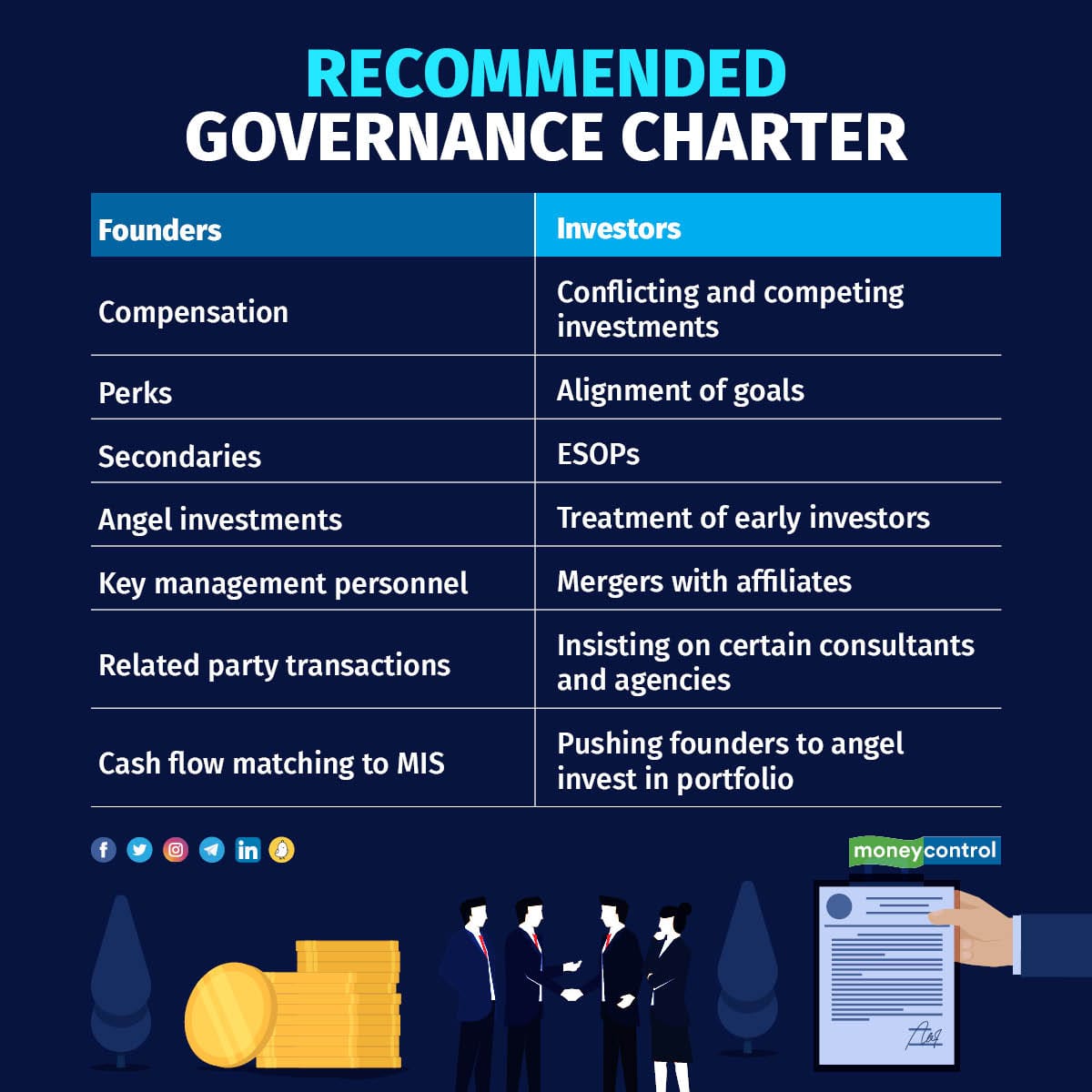



While a lot has gone wrong in the startup world, general suggestions around corporate governance have been about compliance and audits, a POSH (protection of women from sexual harassment at workplace) policy or a whistleblower policy, things which are important but are post facto. A company going to IPO (initial public offer) needs a large set-up including a chief financial officer (CFO), a very diligent board and various internal and external checkpoints.
But many of these problems are seeded much earlier. Very well-meaning founders and early investors get corrupted with perverse incentives and then the problems we see are just a manifestation. If you have a dumb incentive system, you get dumb outcomes, said Charlie Munger. The whole banking crisis which happened in spite of a lot of governance and controls was due to the flawed incentives of the bankers.
Early investors have a significant impact on shaping the initial culture, founder mindset and subsequent governance of these young firms. And in recent years, against traditional wisdom, investors have allowed founders to get used to really perverse incentives in order to win deals or to improve their founder ‘friendliness’. As an example, if a founder takes tonnes of money in a two-year-old high-burn company, just because it is able to raise a lot of money, then raising money and taking some of it out becomes the main incentive. And then there is good reason to fudge numbers because it enables more fundraising. In the short run, till the problems come out in the open, this also makes investors look good.
We need a governance charter that aligns the underlying incentives of both founders and investors to the success of the startup. Therefore, we propose integrating a founder cum investor-centric governance model before a formal governance and compliance structure is set up. Let’s not forget that incentives work in both directions: while founders have faced public scrutiny for recent governance failures, we believe that investors also bear responsibility for sowing the seeds of bad behaviour.

Our specific recommendations follow, and we are sure that all investors and founders will have their own customisation to the framework. For the founders, we recommend:
1. Compensation: Shall not have their cash compensation in the top-3 salaries on the payroll roster of the company. Shall not negotiate side deals for MSOP (management stock option plan) at the time of a new round, at the expense of existing shareholders.
2. Perks: Shall, through a disclosure form, communicate to the board non-cash compensation such as allotment of a company vehicle, long-term lodging accommodations, learning and development expenses made towards them, luxury travel, etc.
3. Secondaries: No secondaries for the first five years. After five years, not more than $2 million once every three years.
4. Angel investments: Not more than 10 in the first five years of the company, with each investment and amount to be disclosed to the board in the quarterly update, giving reasons and explaining any potential conflicts. An equal amount is to be invested by the founder in the company every time an angel investment is made.
5. Key management personnel: Shall maintain a ‘key management’ roster, and disclose the addition and removal of key management personnel to this roster on a quarterly basis. Founders shall agree with the board, the definition of key management every fiscal year.
6. Related party transactions: Quarterly disclosure of related party transactions. The board at its will shall be allowed to audit these related party transactions on an annual basis. Any personal relationships not covered by the word ‘related party’ are also to be disclosed.
7. Cash flow and reconciliation: Shall report, in addition to the pre-agreed MIS, cash balance, liquid assets, liabilities including legal, monthly cash burn, and cash runway guidance to the board every quarter, along with bank statements of all accounts of the company.
For investors, we recommend the following:
* Conflicting and Competing investments: Shall disclose that they have not made any conflicting or competing investments to their portfolio companies on a quarterly basis. They shall further take permission from the founders of the company in case a rationale is to be made towards investing in a potentially conflicting or competing business.
* Alignment of goals: If the investor stands to gain in his/her career due to an up-round, exit or any such event, it should be disclosed to the founder.
* ESOPs: Dilute equally along with founders and make additional ESOP a board decision, not a matter of veto.
* Fair to early investors: Shall not pressurise early investors to sell using the information asymmetry. This leads to founders disregarding the equality and responsibility to all shareholders.
* Mergers with affiliates: Shall not put undue pressure on founders to merge with another portfolio company or another affiliate.
* Consultants, agencies and lawyers: Shall not put pressure on founders to employ external consultants, lawyers, designers, etc for a particular role, or to work with another portfolio company. Any such recommendations, if any, are to be made in front of the entire board.
* Angel investing in a portfolio: Shall respect founders' time and not put pressure on founders to angel invest along with them and warrant any deal flow from the founders. In addition, they should exercise utmost discipline towards making unwarranted introductions to founders.
Anand Lunia is founding partner of IndiaQuotient and Yash Jain is founder and general partner of Sparrow Capital. Views are personal, and do not represent the stand of this publication.
Discover the latest Business News, Sensex, and Nifty updates. Obtain Personal Finance insights, tax queries, and expert opinions on Moneycontrol or download the Moneycontrol App to stay updated!
Find the best of Al News in one place, specially curated for you every weekend.
Stay on top of the latest tech trends and biggest startup news.